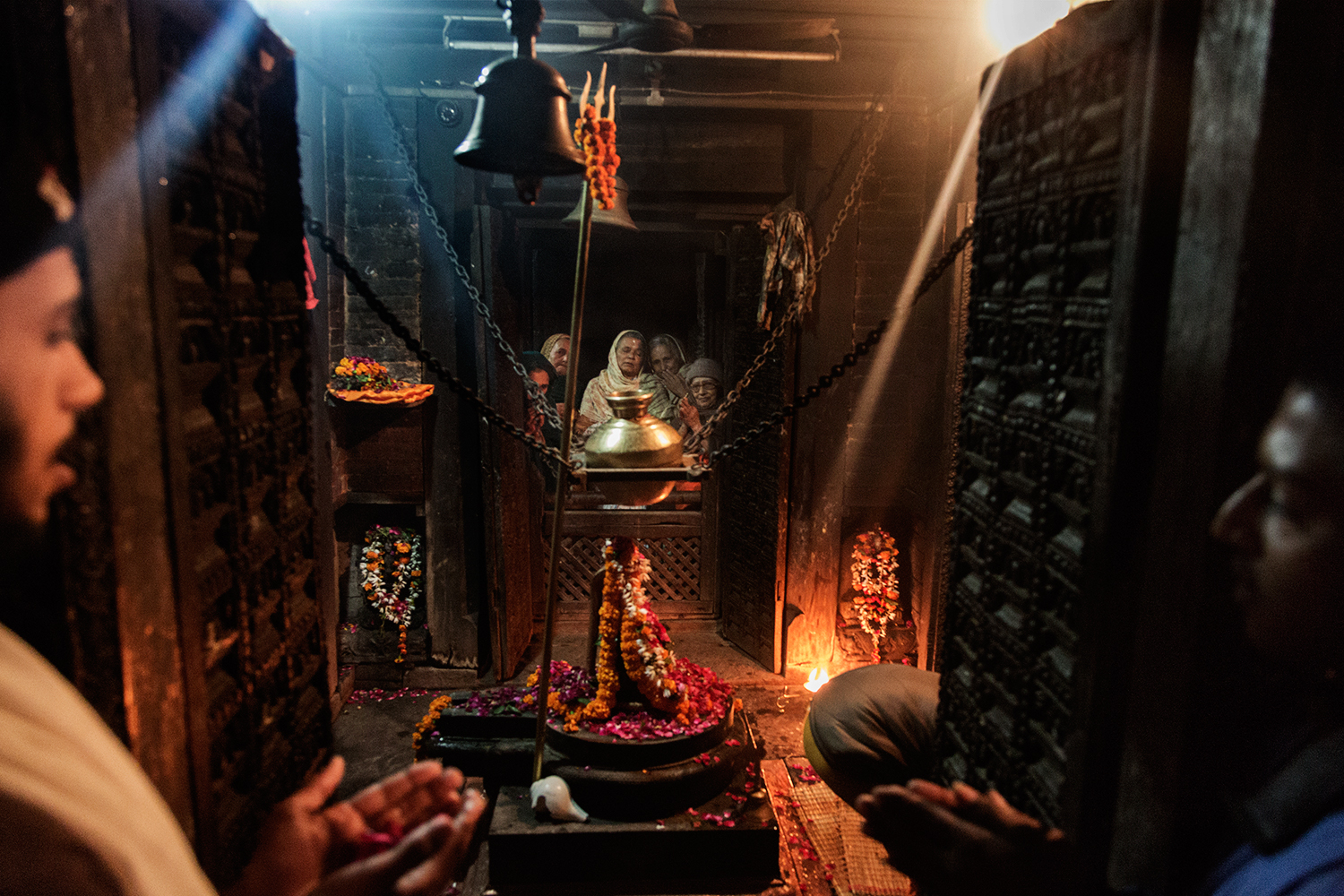
In the past in India, the loss of a husband stigmatised a bereaved wife. Widowed women were treated as untouchables and often cast away from their communities. This adopted belief in the Hindu community is also predominant in Nepal and Bangladesh. Many widows seek shelter in Hindu holy cities such as Varanasi, also known as Benares, Kashi, the City of Light.
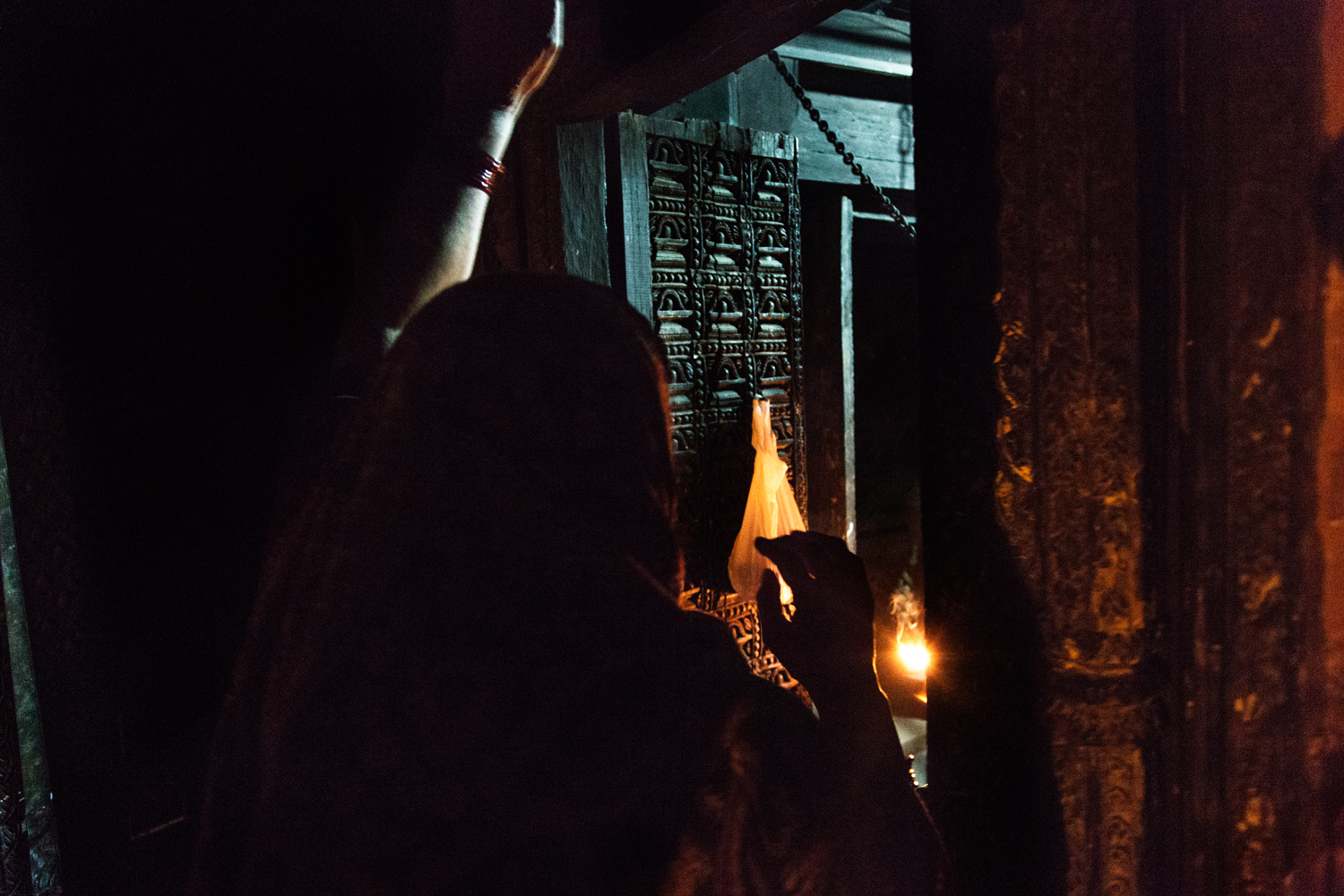
A woman rings a temple bell during evening Aarti. Bell ringing has an important significance during Aarti to welcome the gods into the idol so that devotees may be able to see his or her holy image in the ritualistic light.
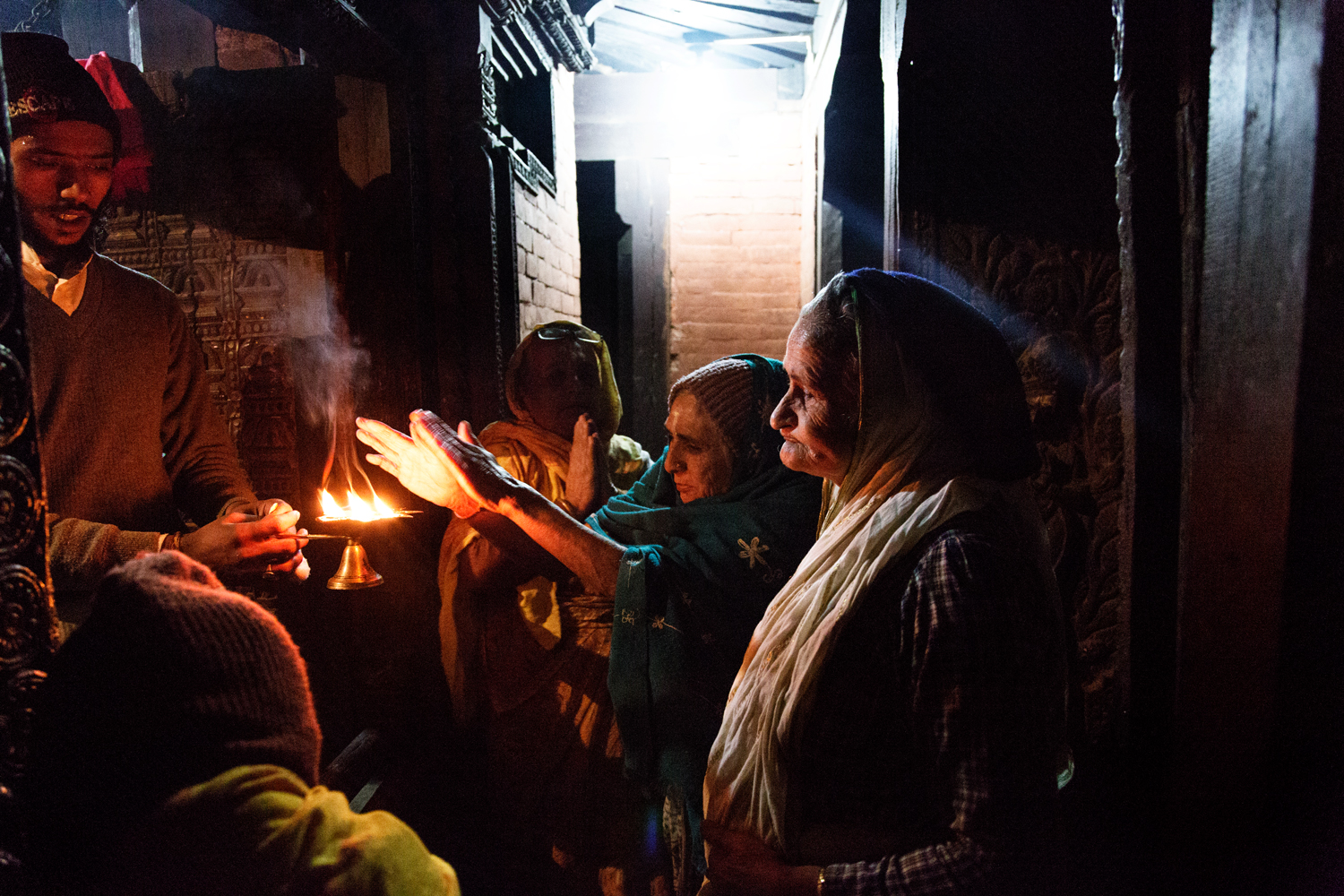
During evening Aarti after a period of prayer ceremonial fire is passed around to allow devotees to raise downturned hands to the flames to receive the flame's power, which they then press to their eyes and head, a purification and a blessing.

Women and children attend evening Aarti performed by young Brahmin priests. The Aarti ceremony, it has been said, descends from ancient Vedic fire rituals, often referred to as a ceremony of light, flames of fire used in the ritual are reportedly infused with the deities’ energy love and blessings.
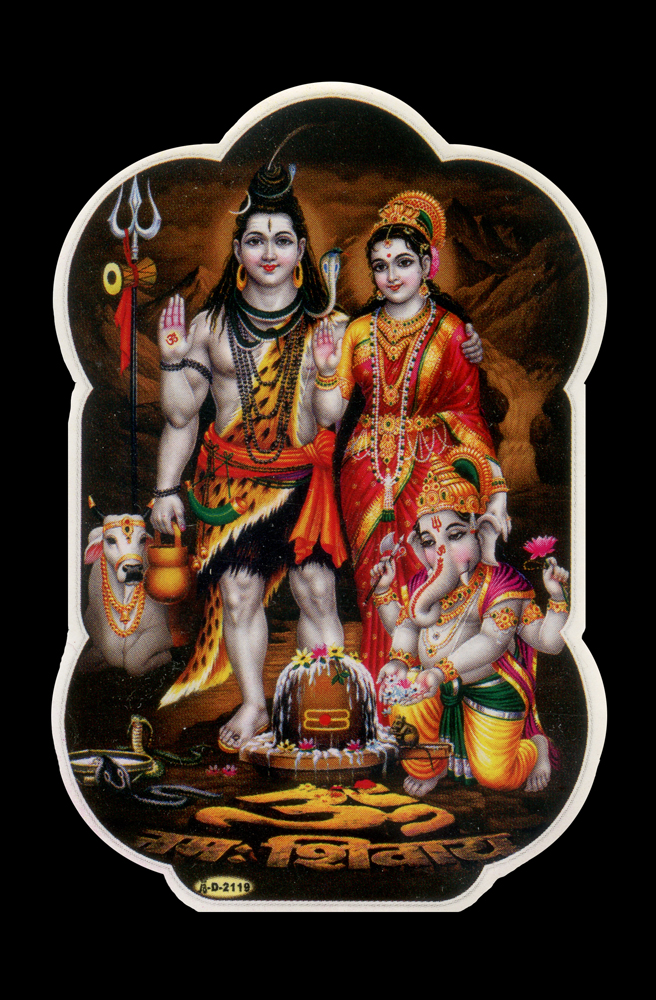
Lord Shiva and consort Goddess Parvati with their son Lord Ganesh. According to ancient Hindu beliefs, Lord Shiva founded the city of Varanasi, also known as Kashi, Benares or the City of Light; one of the oldest living cities in the world.
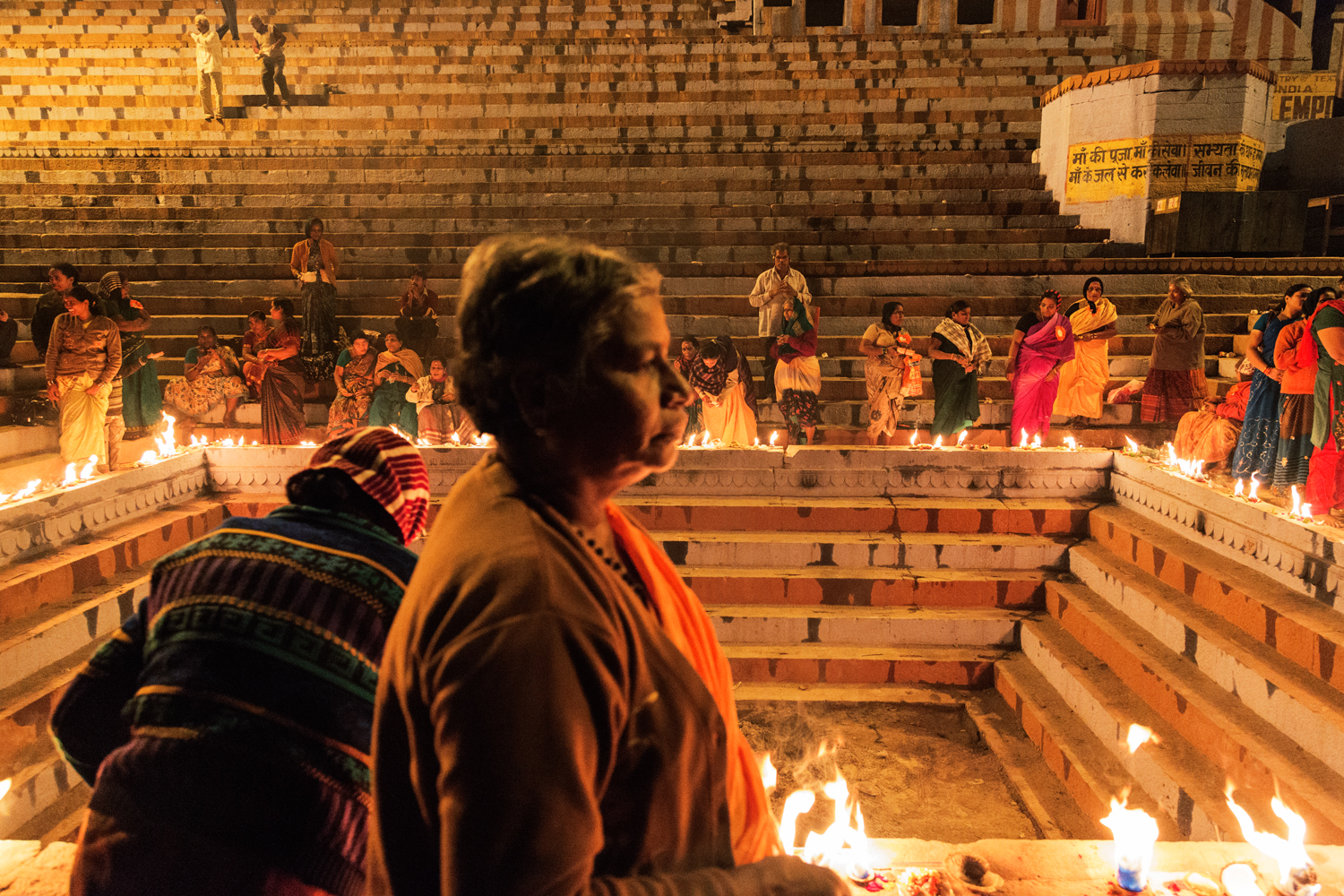
Women gather for evening prayer on a popular Varanasi Ghat by the River Ganga, in Uttar Pradesh India.
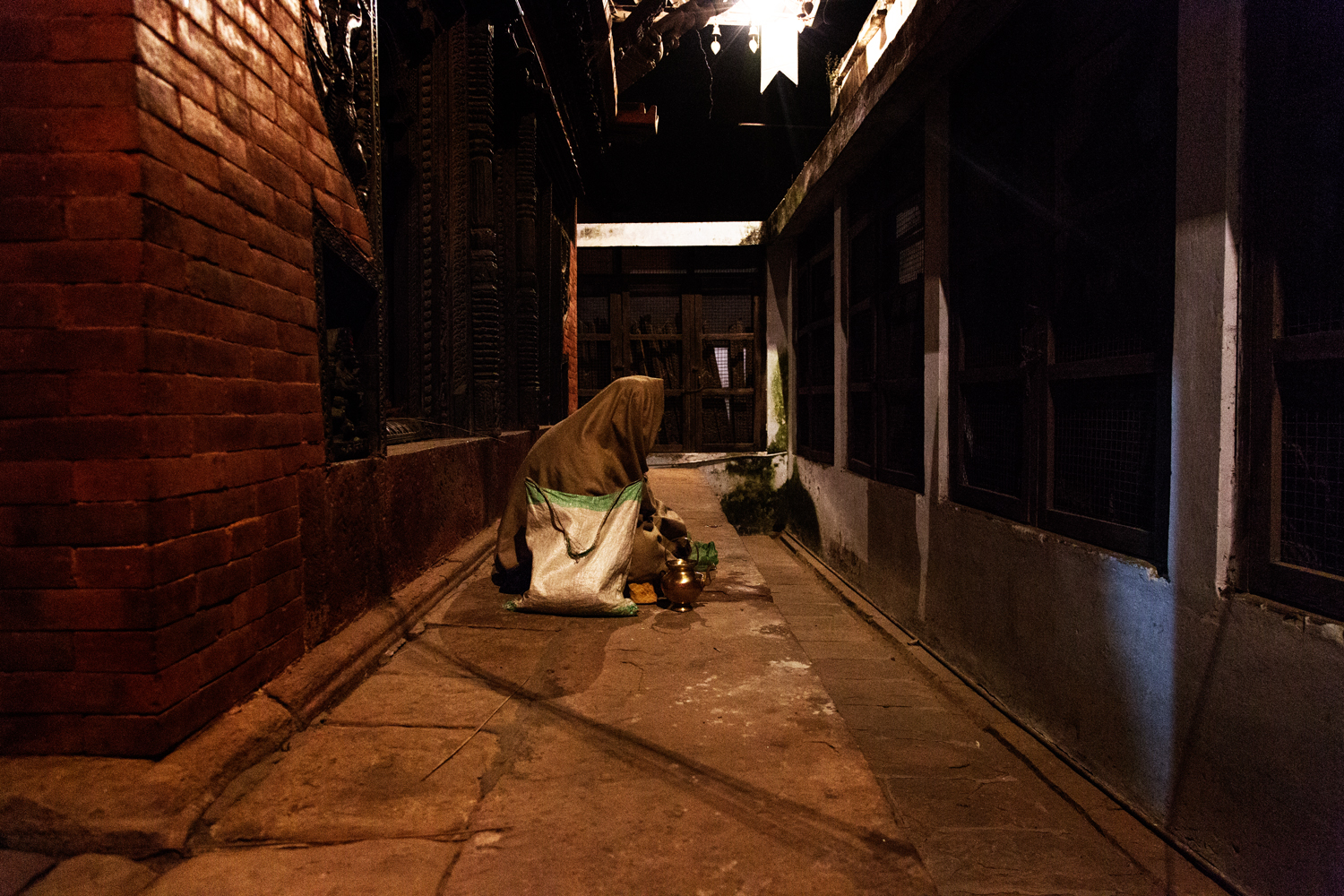
A woman silently prays while she waits for evening Aarti to begin.
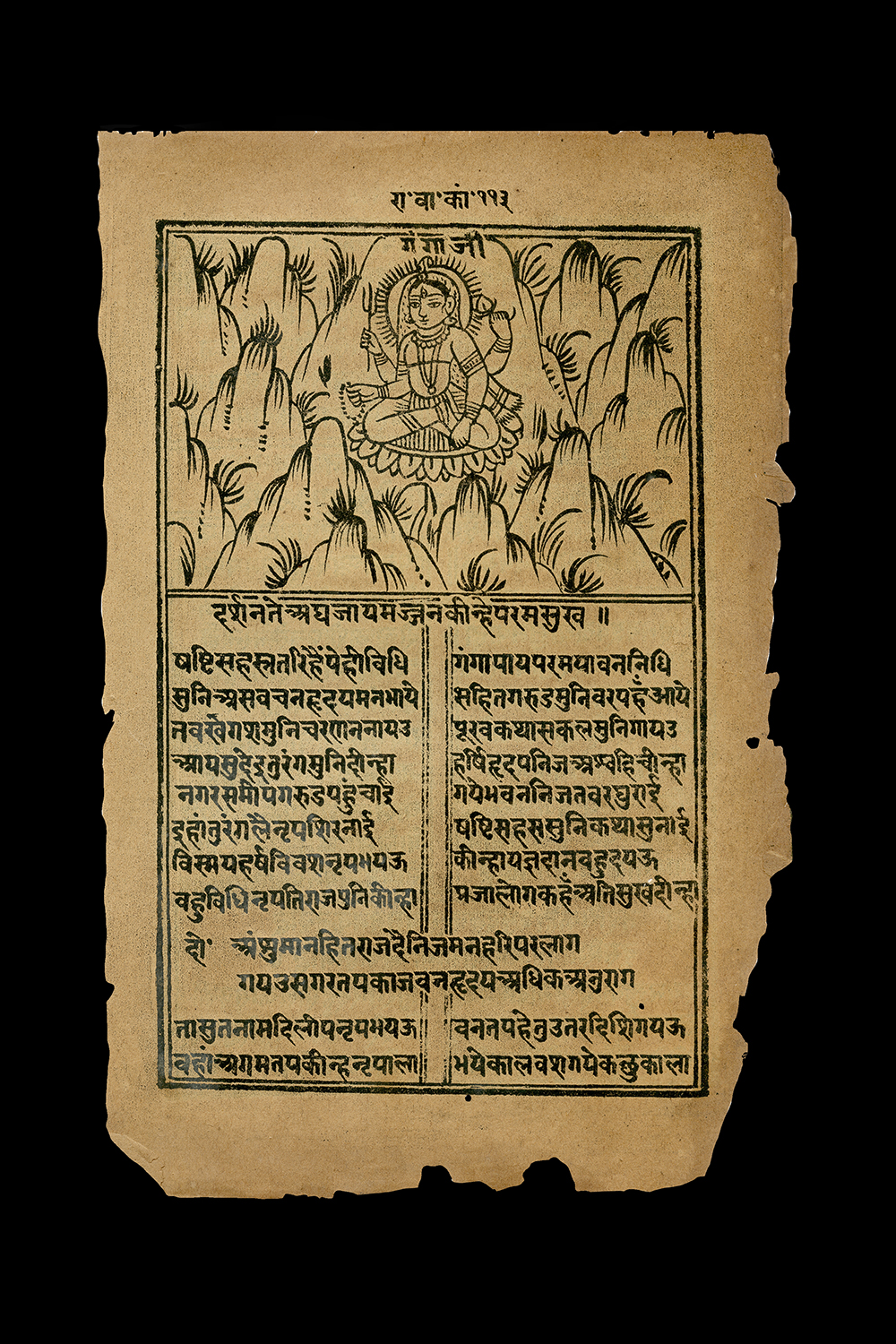
An antique print from a book about the River Ganga, the Goddess Ganga is the female personification of the sacred river. The river is often depicted streaming from the hair of Lord Shiva, legend states he broke her fall to Earth by letting her flow down in small streams from his hair.
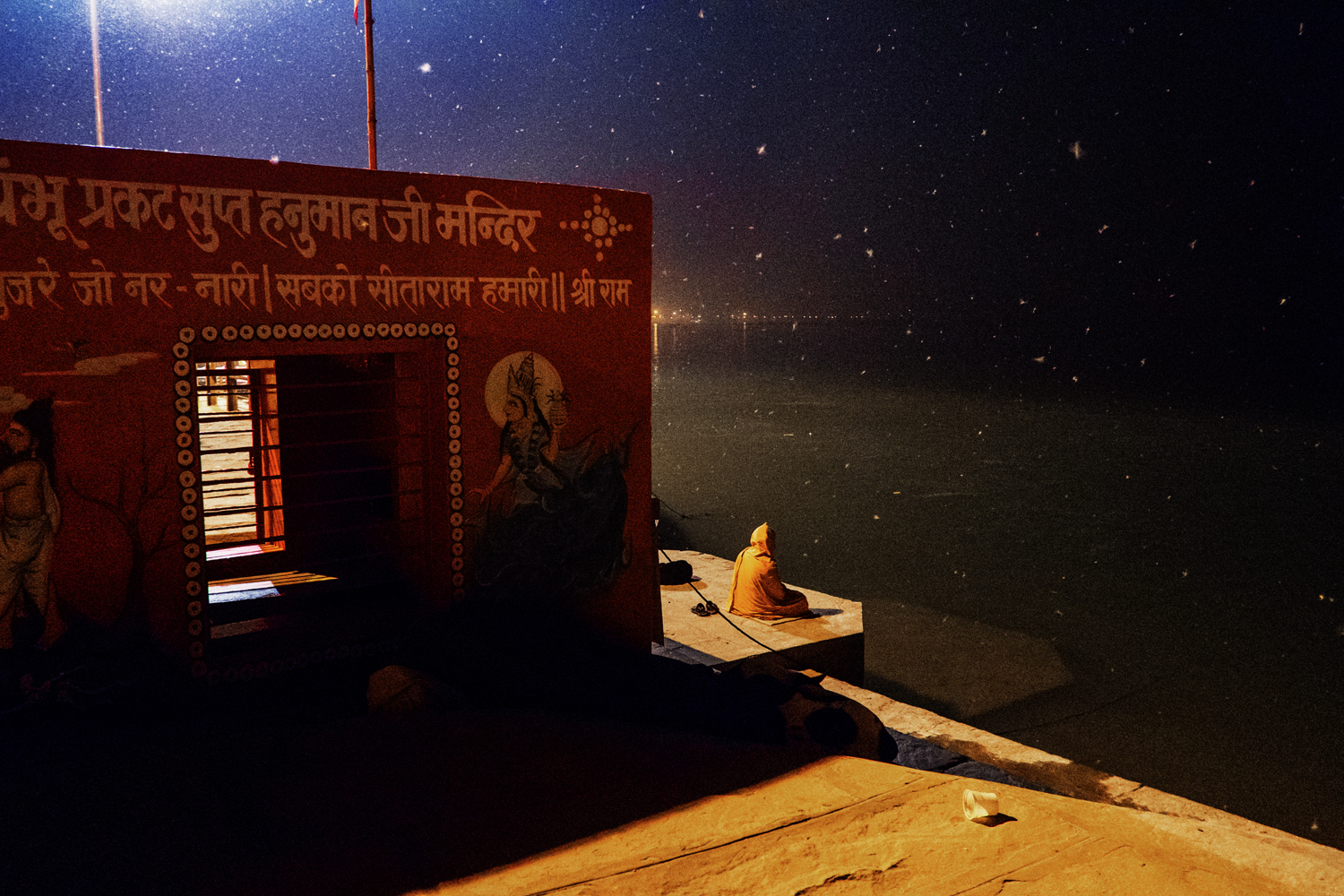
A devotee meditates in front of a small temple near Assi Ghat a cremation site overlooking the Ganga River. Thousands of devotees and pilgrims flock continuously to the holy city of Varanasi in Uttar Pradesh, India.
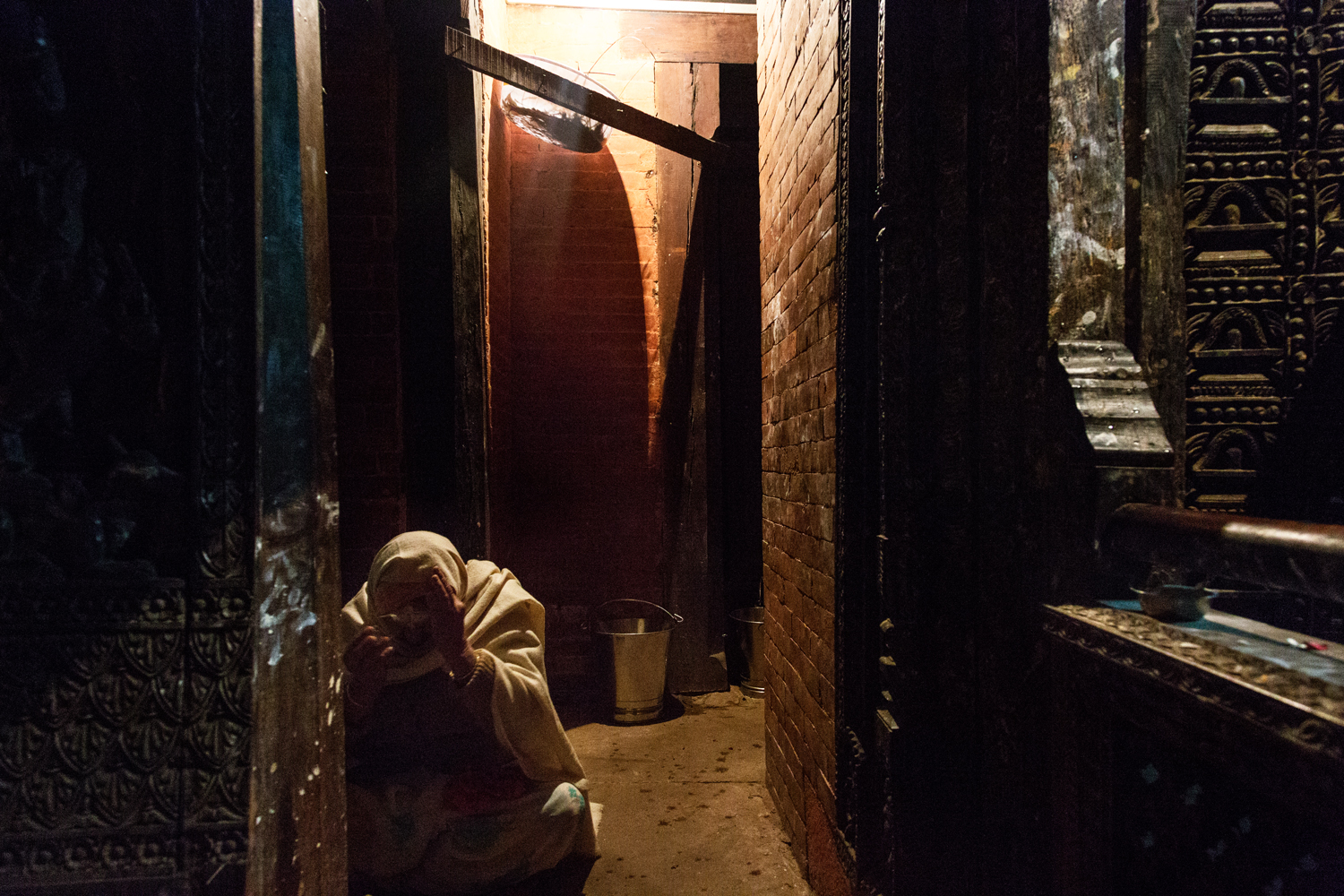
A silent moment of prayer after evening Aarti.
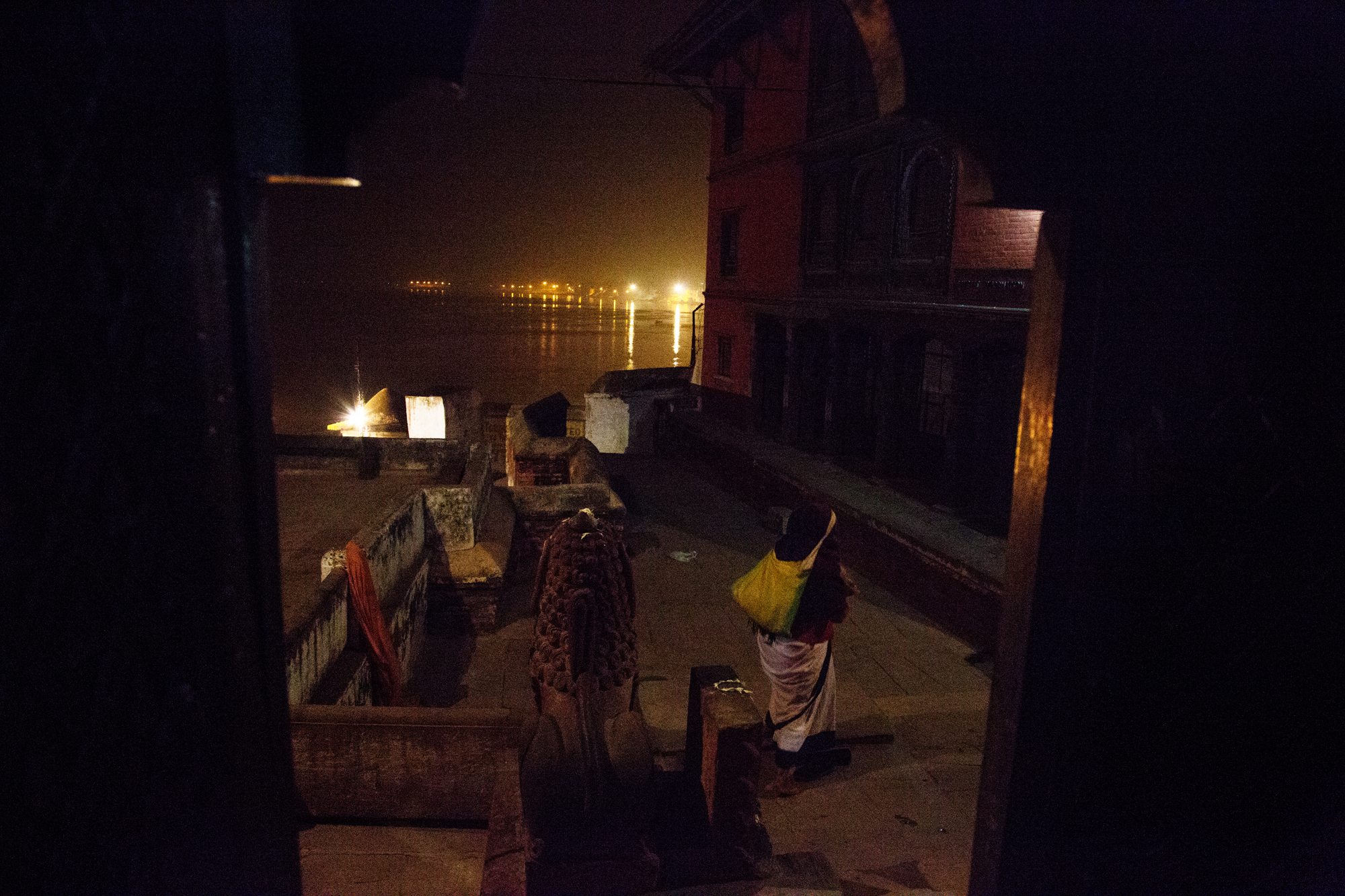
A woman leaves the temple to return to the ashram after evening Aarti.
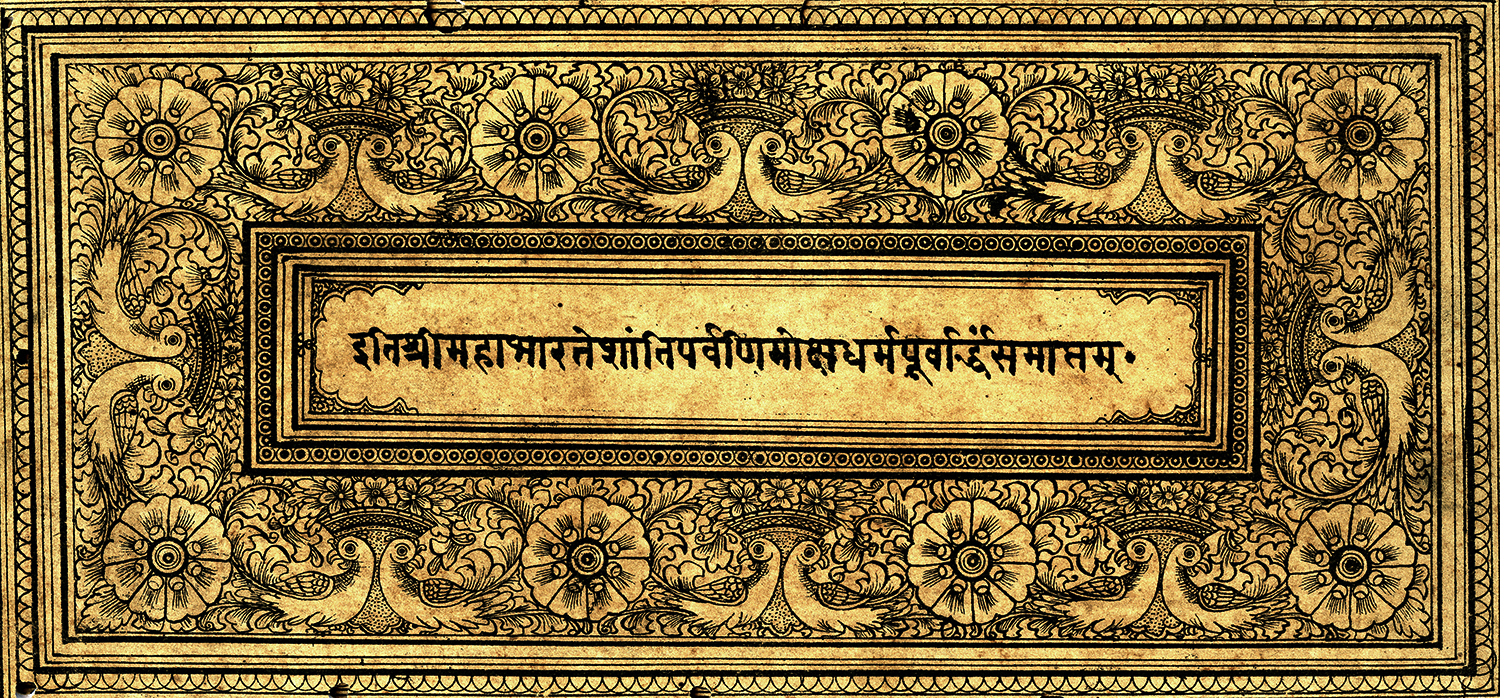
An antique print of a Sanskrit blessing.
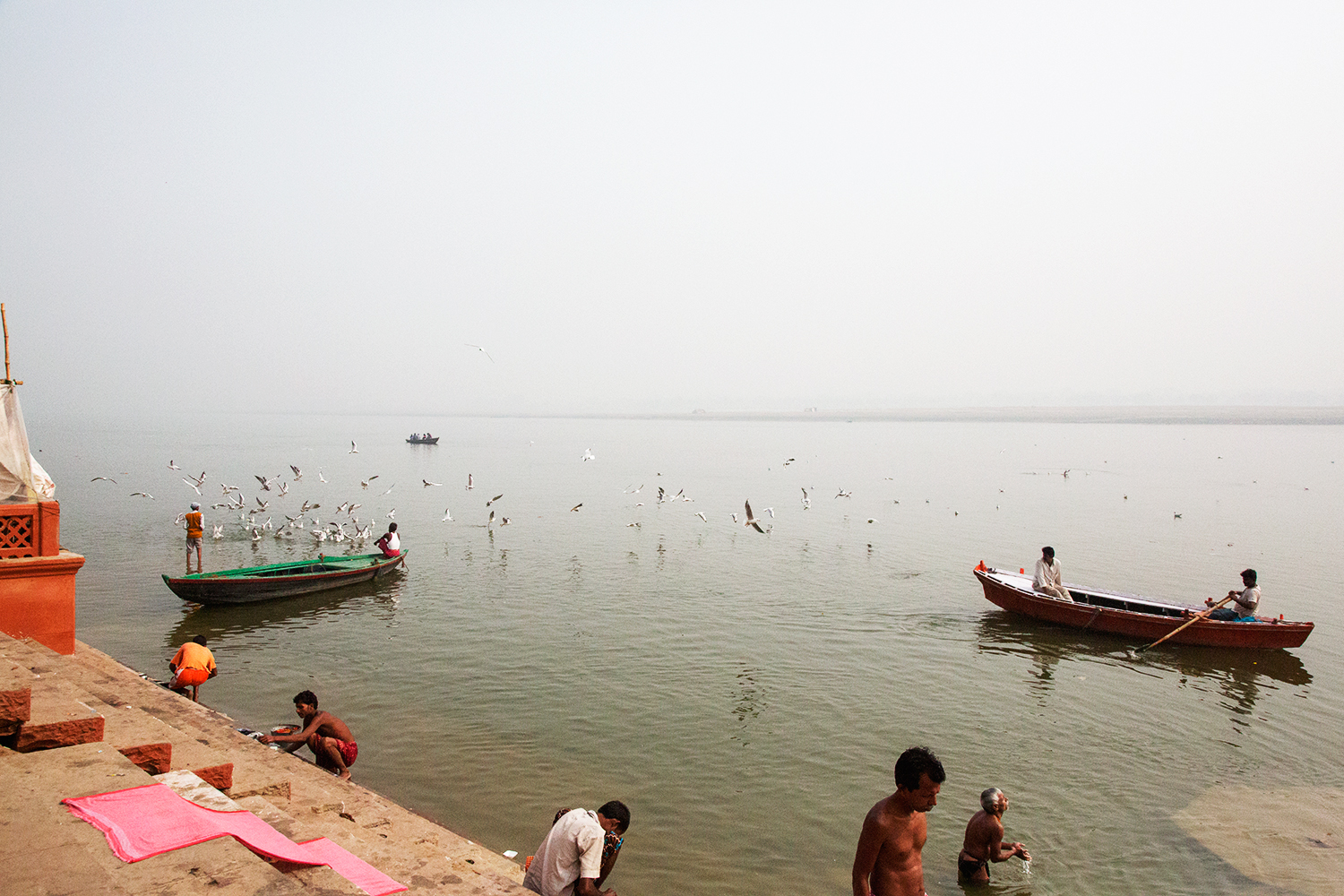
Morning bathers washing in the sacred Ganga River in Varanasi Uttar Pradesh, India.

Hindu gods and gurus
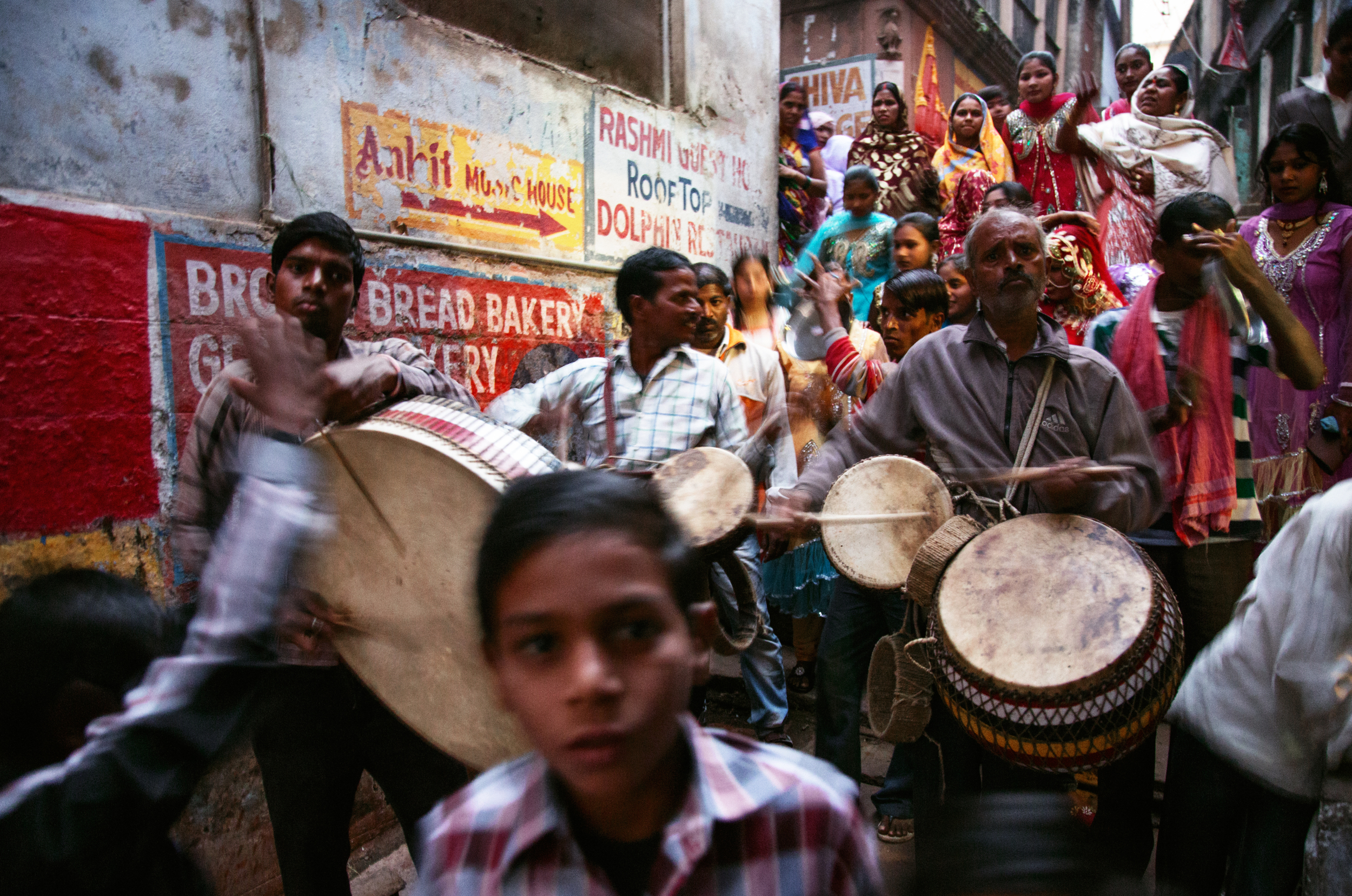
Pre-wedding celebrations weave through the streets of Varanasi, Uttar Pradesh India. Belief in taboos meant that widowed women were not permitted to attend wedding ceremonies as their presence was thought to be unlucky for the new couple.
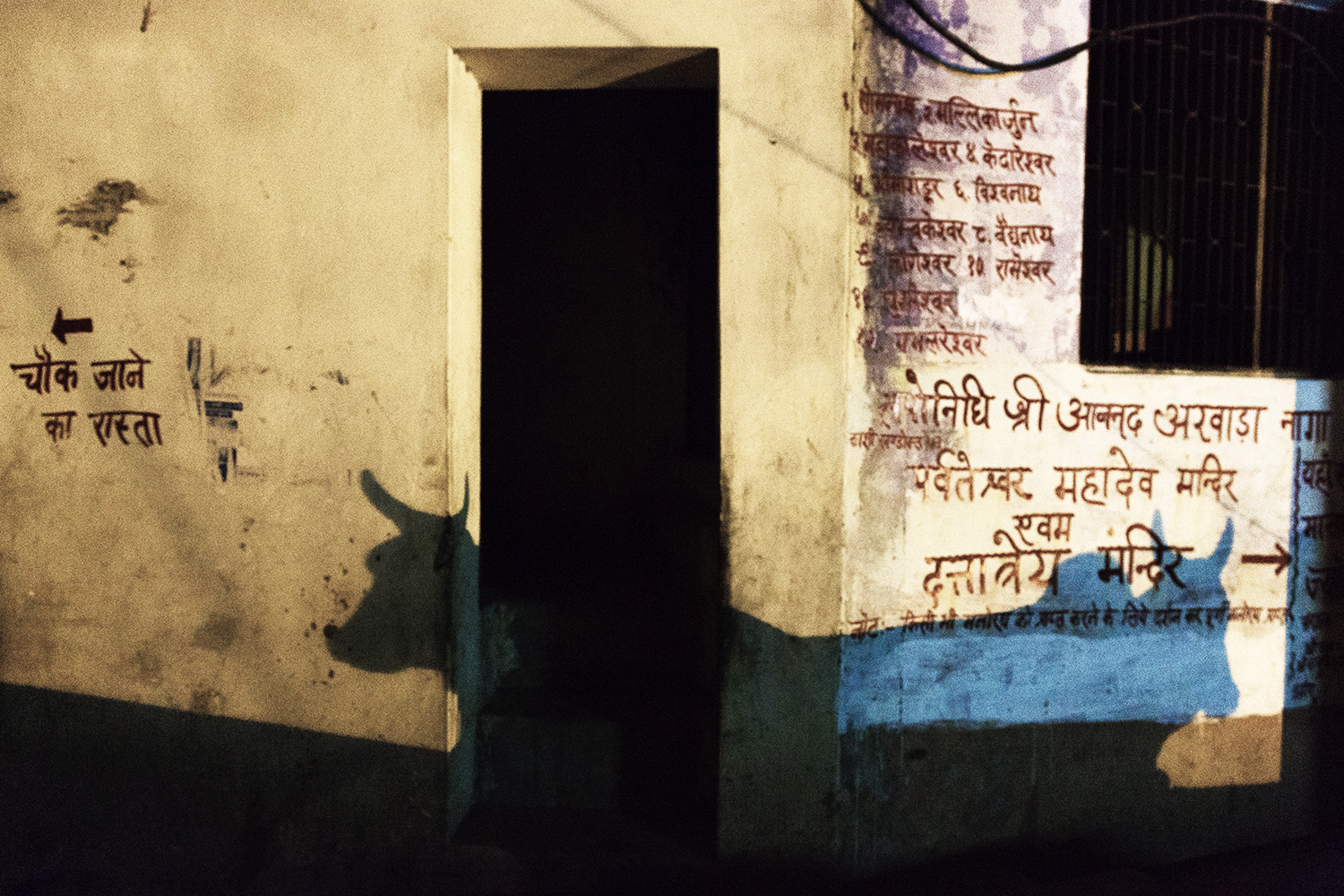
Shadows of cows, two of many that populate the Varanasi streets and Ghats, on the way to the women’s ashram.
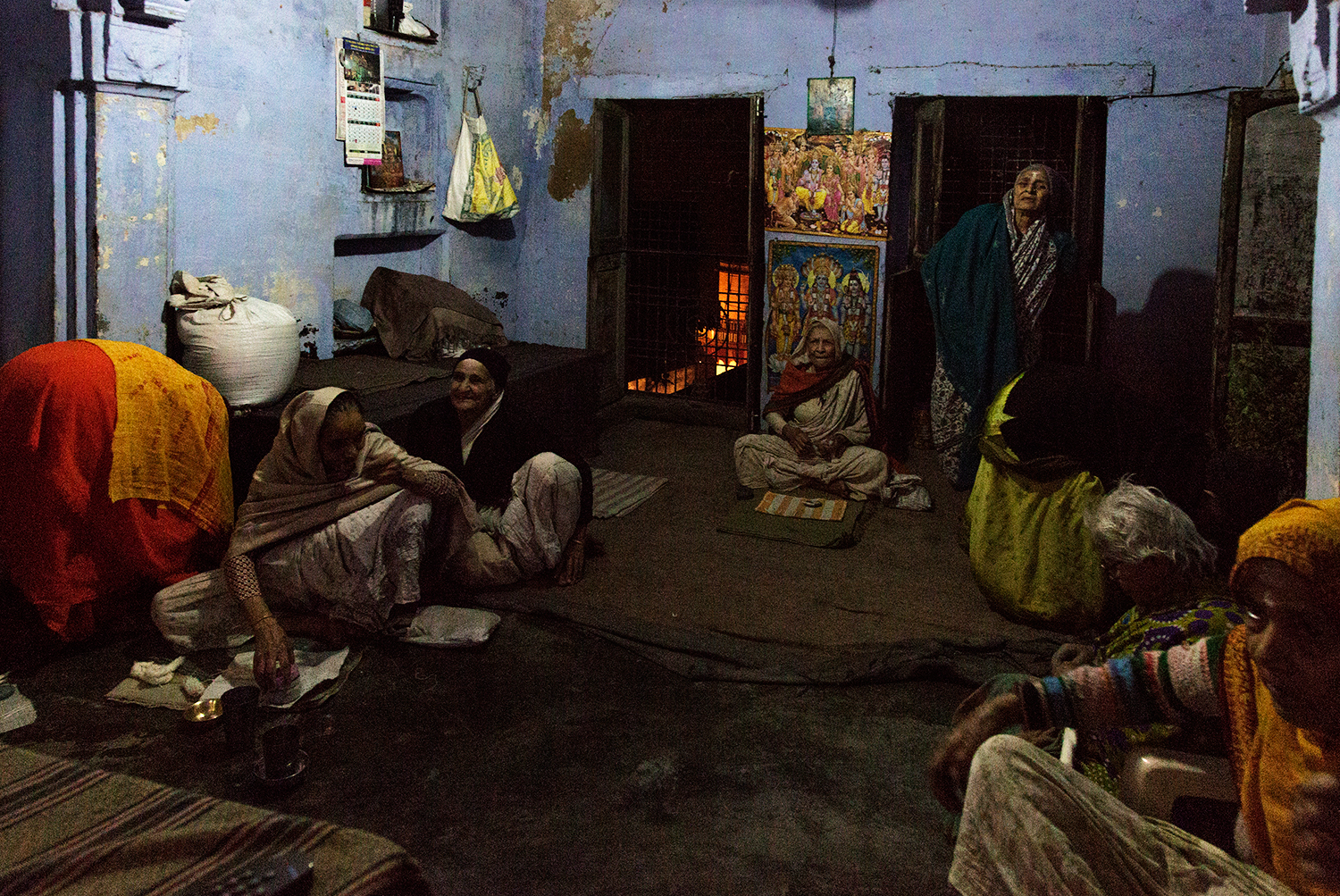
Women relax together and watch television in the ashram after evening Aarti.
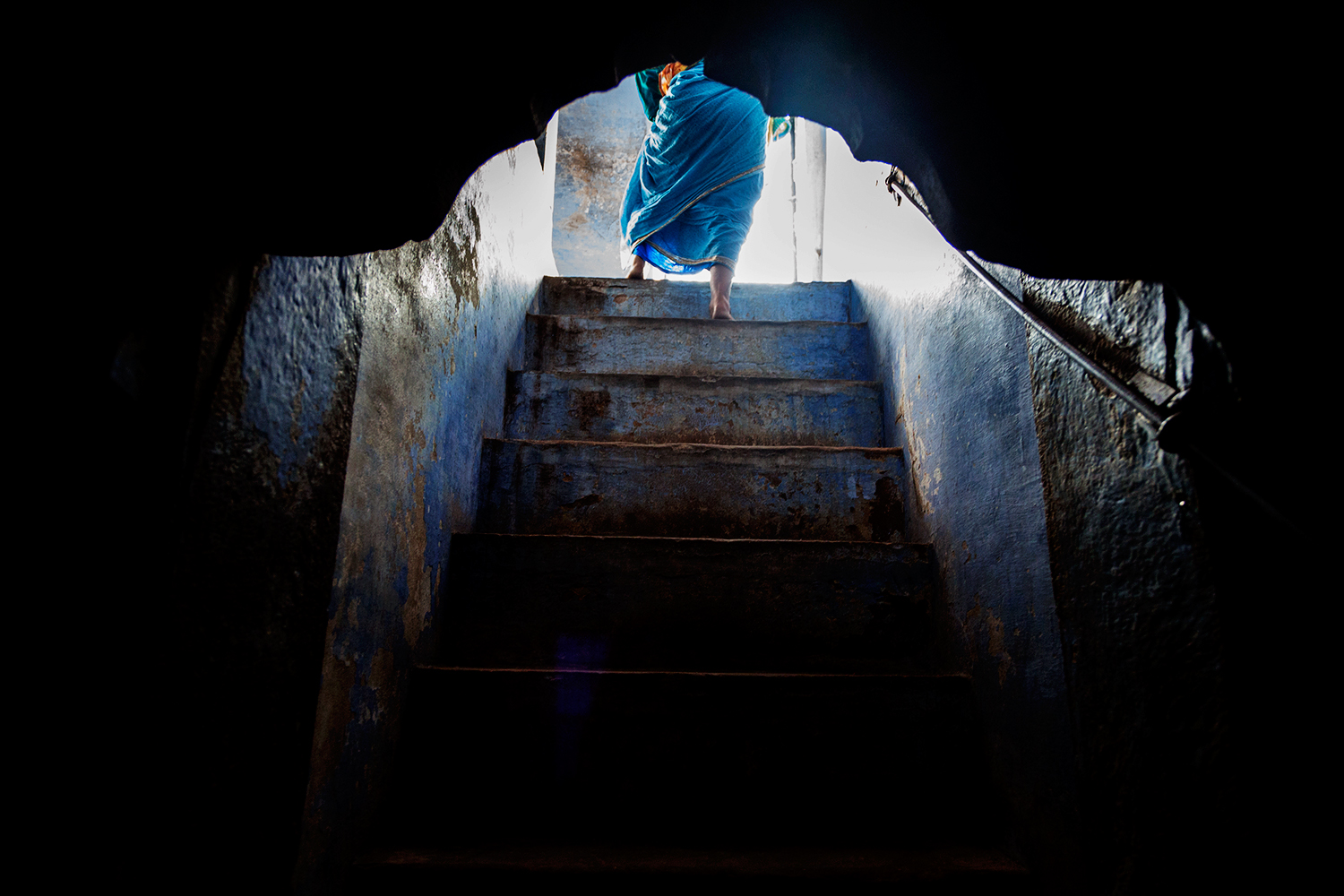
A woman walks upstairs to a communal area from her sleeping quarter in the ashram.
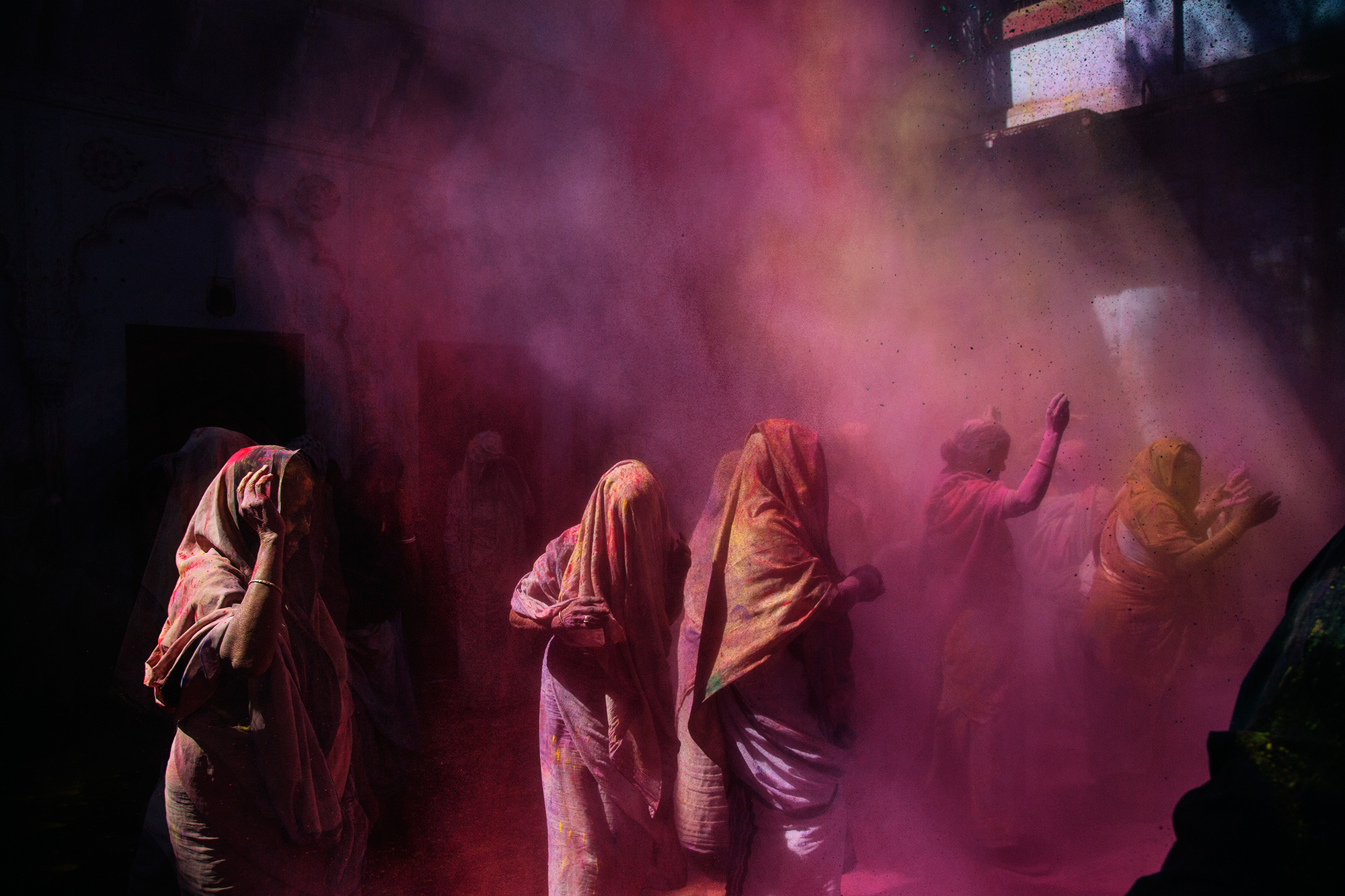
Widows from the Meera Sahabhhagini Ashram celebrate the Holi Festival in Vrindavan, Uttar Pradesh, India. Over the past years they have been encouraged to engage in celebrations by social organisations that are attempting to raise their status in contemporary Indian society

A textile piece from an Indian wedding sari

Manikarnika Ghat, one of the oldest and most sacred cremation sites in Varanasi, Uttar Pradesh India





















In the past in India, the loss of a husband stigmatised a bereaved wife. Widowed women were treated as untouchables and often cast away from their communities. This adopted belief in the Hindu community is also predominant in Nepal and Bangladesh. Many widows seek shelter in Hindu holy cities such as Varanasi, also known as Benares, Kashi, the City of Light.
A woman rings a temple bell during evening Aarti. Bell ringing has an important significance during Aarti to welcome the gods into the idol so that devotees may be able to see his or her holy image in the ritualistic light.
During evening Aarti after a period of prayer ceremonial fire is passed around to allow devotees to raise downturned hands to the flames to receive the flame's power, which they then press to their eyes and head, a purification and a blessing.
Women and children attend evening Aarti performed by young Brahmin priests. The Aarti ceremony, it has been said, descends from ancient Vedic fire rituals, often referred to as a ceremony of light, flames of fire used in the ritual are reportedly infused with the deities’ energy love and blessings.
Lord Shiva and consort Goddess Parvati with their son Lord Ganesh. According to ancient Hindu beliefs, Lord Shiva founded the city of Varanasi, also known as Kashi, Benares or the City of Light; one of the oldest living cities in the world.
Women gather for evening prayer on a popular Varanasi Ghat by the River Ganga, in Uttar Pradesh India.
A woman silently prays while she waits for evening Aarti to begin.
An antique print from a book about the River Ganga, the Goddess Ganga is the female personification of the sacred river. The river is often depicted streaming from the hair of Lord Shiva, legend states he broke her fall to Earth by letting her flow down in small streams from his hair.
A devotee meditates in front of a small temple near Assi Ghat a cremation site overlooking the Ganga River. Thousands of devotees and pilgrims flock continuously to the holy city of Varanasi in Uttar Pradesh, India.
A silent moment of prayer after evening Aarti.
A woman leaves the temple to return to the ashram after evening Aarti.
An antique print of a Sanskrit blessing.
Morning bathers washing in the sacred Ganga River in Varanasi Uttar Pradesh, India.
Hindu gods and gurus
Pre-wedding celebrations weave through the streets of Varanasi, Uttar Pradesh India. Belief in taboos meant that widowed women were not permitted to attend wedding ceremonies as their presence was thought to be unlucky for the new couple.
Shadows of cows, two of many that populate the Varanasi streets and Ghats, on the way to the women’s ashram.
Women relax together and watch television in the ashram after evening Aarti.
A woman walks upstairs to a communal area from her sleeping quarter in the ashram.
Widows from the Meera Sahabhhagini Ashram celebrate the Holi Festival in Vrindavan, Uttar Pradesh, India. Over the past years they have been encouraged to engage in celebrations by social organisations that are attempting to raise their status in contemporary Indian society
A textile piece from an Indian wedding sari
Manikarnika Ghat, one of the oldest and most sacred cremation sites in Varanasi, Uttar Pradesh India
